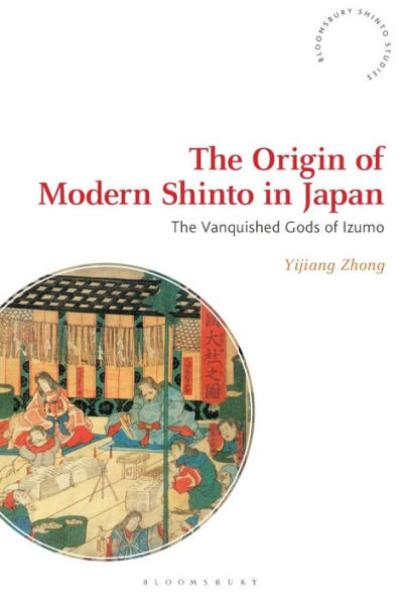Description
Yijiang Zhong analyses the formation of Shinto as a complex and diverse religious tradition in early modern and Meiji Japan, 1600-1868. Highlighting the role of the god Okuninushi and the mythology centered on the Izumo Shrine in western Japan as part of this process, he shows how and why this god came to be ignored in State Shinto in the modern period.
In doing so, Zhong moves away from the traditional understanding of Shinto history as something completely internal to the nation of Japan, and instead situates the formation of Shinto within a larger geopolitical context involving intellectual and political developments in the East Asian region and the role of western colonial expansion.
The Origin of Modern Shinto in Japan draws extensively on primary source materials in Japan, many of which were only made available to the public less than a decade ago and have not yet been studied. Source materials analysed include shrine records and object materials, contemporary written texts, official materials from the national and provincial levels, and a broad range of visual sources based on contemporary prints, drawings, photographs and material culture.
Yijiang Zhong is Associate Professor at the Institute for Advanced Studies on Asia at the University of Tokyo, Japan and Research Fellow of the Center for Interdisciplinary Study of Monotheistic Religions at the Doshisha University, Kyoto, Japan. He received his PhD from the University of Chicago, USA, and was previously a Research Fellow at the National University of Singapore.
Fabio Rambelli, Professor of Japanese Religions and Cultural History and ISF Endowed
Chair in Shinto Studies at the University of California, Santa Barbara, USA
"Zhong's book maintains a refreshingly wide gaze, focusing simultaneously on local, transregional, and transcultural flows that, by his argument, all impacted the internal developments of the Izumo Shrine and its shifting position within the nascent intellectual and political fields of early modern and modern Japan. Such a dynamic framework is new, and its expanding scope is yielding exciting results." - American Historical Review
Zhong moves away from the traditional understanding of Shinto history as something completely internal to the nation of Japan, and instead situates the formation of Shinto within a larger geopolitical context involving intellectual and political developments in the East Asian region and the role of western colonial expansion." - Reading Religion
Product Details
- Bloomsbury Academic Brand
- Apr 19, 2018 Pub Date:
- 1350066540 ISBN-10:
- 9781350066540 ISBN-13:
- 272 Pages
- 9.21 in * 6.14 in * 0.58 in Dimensions:
- 1 lb Weight:




